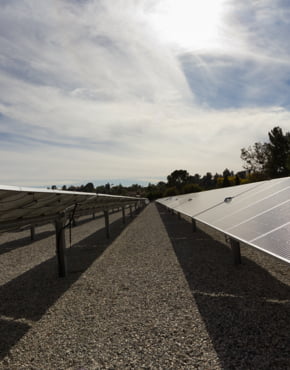District joins agencies across California in contributing funding for the project’s pre-construction activities in 2026 and 2027
Metropolitan Water District’s Board of Directors voted today to provide additional funding for planning costs for a project that could modernize statewide infrastructure that delivers water to 27 million Californians.
Metropolitan’s 38-member board approved $142 million to fund its share of environmental planning and pre-construction costs for the Delta Conveyance Project in 2026 and 2027.
The project is an initiative to increase the long-term reliability of the State Water Project and make it more resilient to climate extremes, sea level rise and earthquakes. The State Water Project delivers water from the northern Sierra to communities across California, providing about 30% of the water used in Southern California.
"After careful consideration, our board took this step because it allows us to gather critical information about the project’s benefits and costs that will allow us to evaluate whether we will participate in the full construction of the project,” said Metropolitan board Chair Adán Ortega, Jr.
“Along with our investments in storage, a more resilient distribution system, conservation and local supplies, the State Water Project remains a cornerstone of water reliability for the 19 million people in our service area,” he added. “Without it, salinity in our water could become unmanageable.”
The Delta Conveyance Project is part of Gov. Gavin Newsom’s portfolio approach to water management and calls for the construction of new conveyance facilities in the Sacramento-San Joaquin Delta. The project has been under review for more than a decade by experts in engineering, water management, science, and habitat protection.
Most recently, it has been refined and includes the construction of two new intakes on the Sacramento River in the north Delta, an underground tunnel 45 miles in length and 36 feet in diameter, and a pumping plant to lift water from the terminus of the pipeline into the Bethany Reservoir at the beginning of the California Aqueduct.
"As California faces the growing challenges of climate change and shifting precipitation patterns, we must consider all our options for ensuring Southern California has a reliable water supply for decades to come,” said Metropolitan Interim General Manager Deven Upadhyay. “Deciding where to invest our resources requires a thorough understanding of each option, and this funding will ensure we have that information.”
The approved funding allows planning and pre-construction work to continue, with Metropolitan contributing its proportionate share of 47.2% of the estimated $300 million in planning costs for 2026 and 2027, totaling approximately $142 million. In 2020, Metropolitan’s Board approved funding for pre-construction activities over the past four years, including the completion of the final Environmental Impact Report, permitting efforts, benefit-cost analyses, and extensive outreach to Tribes, environmental justice communities, and other stakeholders.
“This has been a collaborative process in which we have worked with the state to ensure permitting and certification processes will be completed in 2026 and that we will see project benefits proportionate to our funding level,” Ortega said. “We are also pleased that the state provided safeguards to mitigate spending if circumstances prevent key components of planning from moving forward. The state also committed to identifying new, long-term financing approaches for the project, while also developing ways to improve the near-term reliability of State Water Project infrastructure.”
A future decision would come before the Board in 2027 based on further design and permitting, as well as updates to the cost estimate and further definition around project benefits, to determine whether Metropolitan will participate in the construction of the project.
The Metropolitan Water District of Southern California is a state-established cooperative that, along with its 26 cities and retail suppliers, provides water for 19 million people in six counties. The district imports water from the Colorado River and Northern California to supplement local supplies, and helps its members to develop increased water conservation, recycling, storage and other resource-management programs.
Media Contacts
